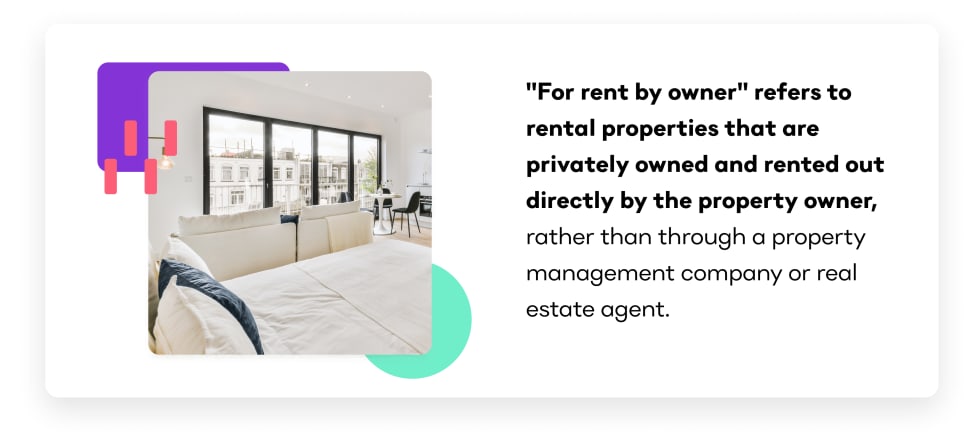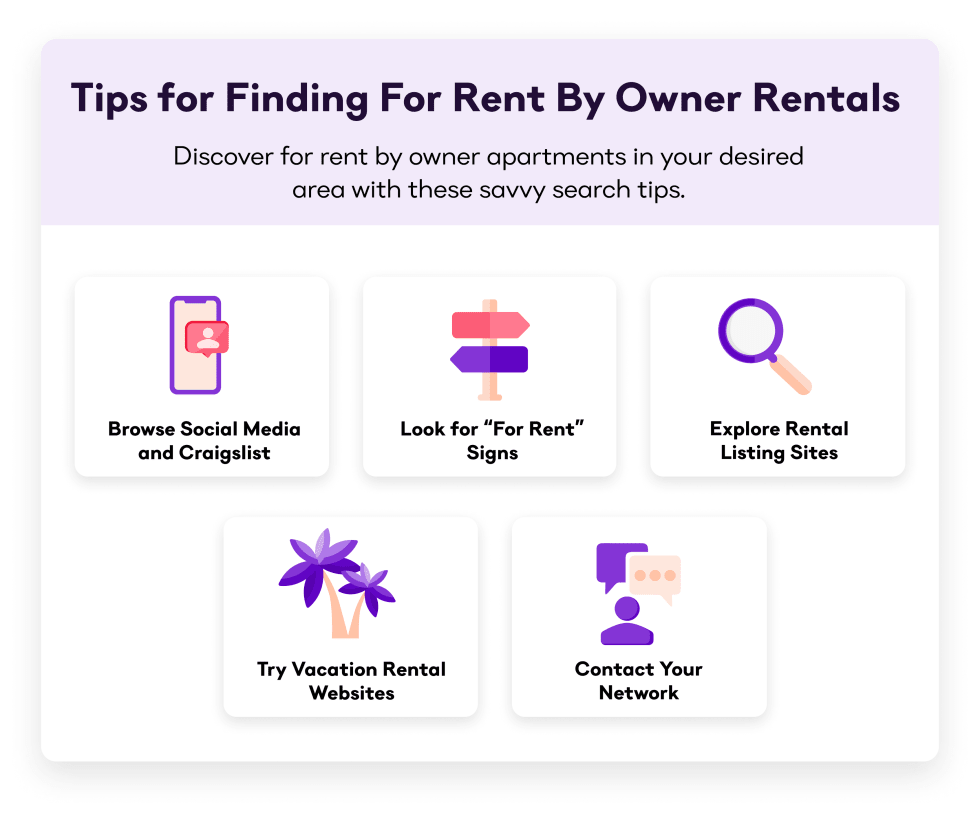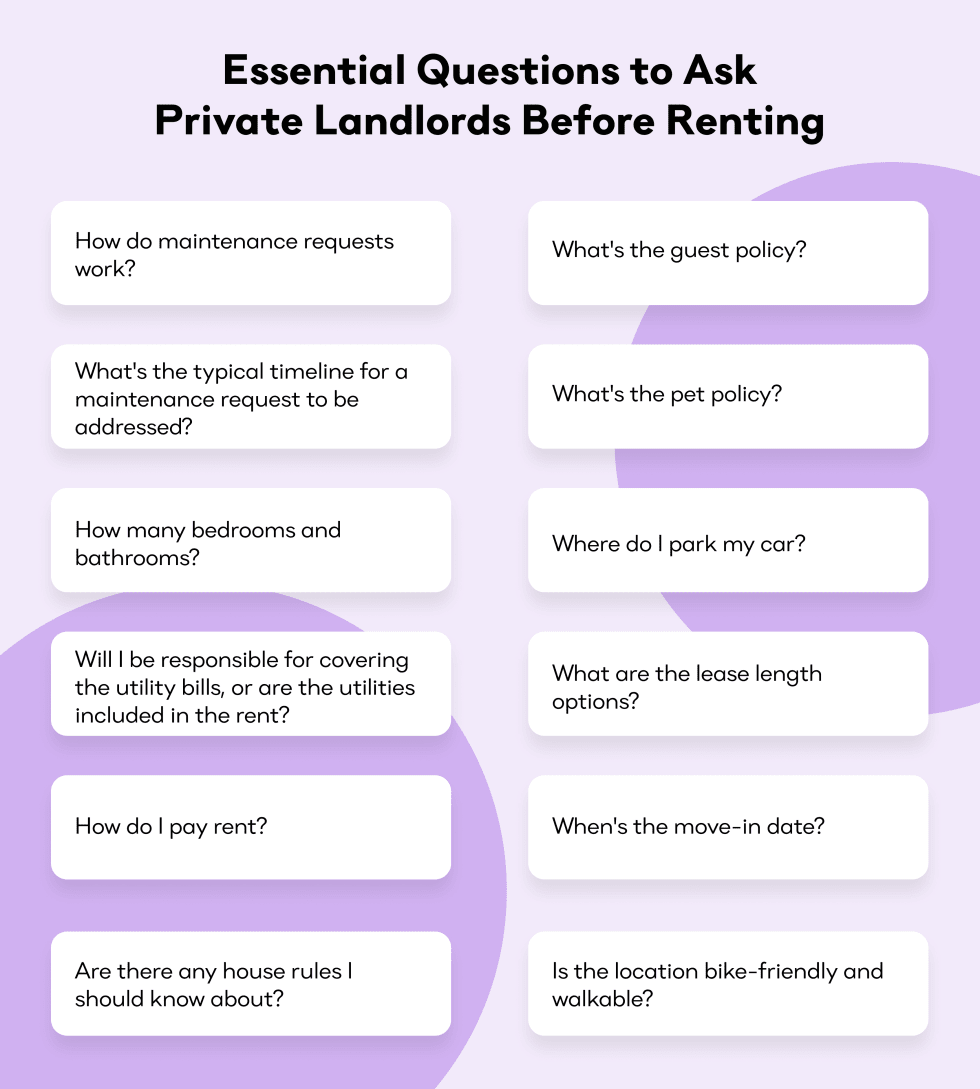- 47 units available
- 1 bed • 2 bed • 3 bed
- Amenities
In unit laundry, Hardwood floors, Dishwasher, 24hr maintenance, Stainless steel, Walk in closets + more

Many apartments (around 69%) are listed directly by landlords, rather than management companies.
These "for rent by owner" (FRBO) rentals can offer more flexibility, potential cost savings, and direct communication, but they may also lack amenities, be harder to find, and pose maintenance risks.
This guide explains what FRBO apartments are, the best ways to find them, what to look for, and how to avoid pitfalls.
FRBO apartments are rental units leased directly by the property owner, instead of through a property management company or leasing agent.
Key differences:

Renting directly from an owner can offer unique perks that you might not find with traditional property management companies.
| Benefit | Why? |
|---|---|
| Greater Flexibility | Owners may offer month-to-month leases, more lenient pet policies, and be open to negotiation, especially if you have a good rental history. |
| Potential Cost Savings | No fees to management companies, agents, or leasing offices. You might also negotiate rent in exchange for tasks like repairs. |
| Direct Communication | Maintenance requests typically go straight to the landlord, allowing for a quicker response and fewer delays. |

While FRBO rentals have clear advantages, they can also come with trade-offs that may not suit every renter.
| Downside | Why? |
|---|---|
| Limited Amenities | FRBO properties often lack perks like gyms, pools, or shared community spaces. |
| Slower Maintenance | Owners may not respond quickly or might try DIY solutions that fall short. |
| Difficult to Find | These apartments are less likely to appear on major platforms, making it necessary to look out for local ads, signs, or networks. |
| Possible On-Site Landlord | Common in duplexes or triplexes, some renters find this intrusive. |
Looking for “For Rent by Owner” (FRBO) listings can be a smart way to save money and avoid management fees, but they aren’t always easy to find. Here are several strategies to help you locate them:
Finding a FRBO apartment may take extra effort, but the potential flexibility and savings can make it worth your time. Be patient and stay persistent to boost your chances.

To get clear on details and avoid surprises, ask:

Applying to a “for rent by owner” (FRBO) apartment can feel more casual than working with a property management company, but it should still be approached professionally. Since each private landlord may handle things differently, knowing what to expect helps you stay prepared and competitive.
1. Contact the Landlord
Send a clear message expressing your interest, requesting a tour, and confirming availability.
2. Schedule a Tour
Try to view the unit in person if possible. If not, ask for a live video tour or detailed photos.
3. Submit your Application
Provide necessary details such as income, references, rental history, and contact info. Some landlords may use paper or email, while others use online portals.
4. Undergo Screening
Expect a credit and background check. Don’t forget to ask about application fees, which are sometimes capped by state laws.
5. Share Income Proof
Submit pay stubs, tax returns, or bank statements to verify your income.
6. Give References
Include the contact info for prior landlords or employers who can vouch for you.
7. Sign Lease & Pay Deposit
Review the lease terms carefully before signing. The deposit is typically one month’s rent.
Ready to apply? These tips will help you avoid common pitfalls and make the best impression.
By staying prepared and professional, you’ll improve your chances of securing a great rental.
Renting from a private landlord offers more flexibility, but it can come with trade-offs like fewer amenities and unpredictable maintenance. Start by getting clear on your rental priorities and then explore listings that match. Ready to dive in? Take our quiz to find your best-fit rental!
Usually yes, because there’s no agent fees and fewer. However, always compare market rates in your area.
Look for mention of “by owner” or lack of company branding. You can also send a message to ask before applying.
Generally yes, with normal precautions. See the property in-person, be wary of upfront fees, verify ownership, and read the lease carefully.
Yes, most standard landlord‑tenant laws still apply including deposit limits and obligation to maintain habitable conditions.




In unit laundry, Hardwood floors, Dishwasher, 24hr maintenance, Stainless steel, Walk in closets + more
In unit laundry, Granite counters, Pet friendly, Stainless steel, Walk in closets, Gym + more